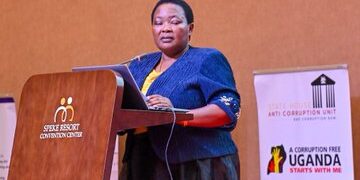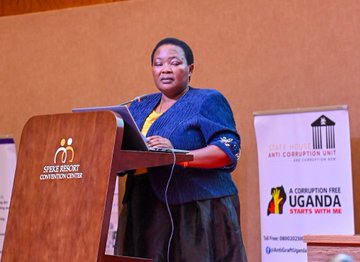Munyonyo, Kampala – The Rt. Hon. Prime Minister Robinah Nabbanja has reaffirmed the government’s firm commitment to eliminating corruption during the commemoration of International Anti-Corruption Day on December 10, 2024.
Nabbanja was representing President Museveni as the Chief Guest at the event running under the theme “Promoting Effective Participation of the Youth in the War Against Corruption” and held at Speke Resort Munyonyo, Kampala.
She highlighted that this commitment has its roots in the liberation struggle, where the principles of accountability and integrity were prioritised under the Ten-Point Programme of the National Resistance Movement (NRM).
“This government’s fight against corruption is not new; it is rooted in the liberation struggle,” Nabbanja stated. “Under the Ten-Point Programme of the NRM, we prioritised accountability and integrity, and these values continue to guide our policies today.”
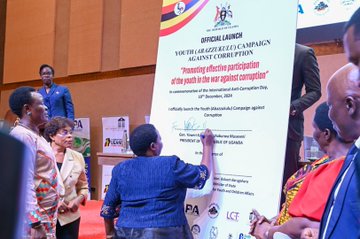
The Prime Minister highlighted key national frameworks that embody this commitment, including the NRM Manifesto (2021–2026), Vision 2040, and the National Development Plans III and IV.
“These frameworks clearly articulate our resolve to eliminate corruption and build a public service that manages resources responsibly, operates ethically, and works efficiently,” she said.
Calling for collective responsibility, Nabbanja urged all Ugandans to actively participate in the fight against corruption.
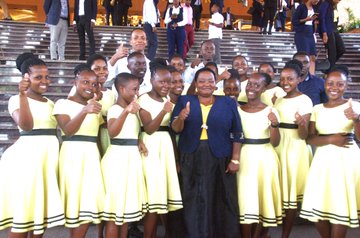
“The success of this fight does not rest on the government alone. Civil society, professional organisations, the media, and religious leaders must fulfil their roles to ensure we achieve a transparent and accountable society,” she emphasised.
The Prime Minister also stressed the importance of collaboration among anti-corruption agencies.
“We must strengthen cooperation to identify areas in the public service most vulnerable to corruption. Mapping high-risk Ministries, Departments, Agencies (MDAs), and Local Governments is essential to develop targeted strategies that address these risks,” she advised.
Emphasising technology’s transformative role, Nabbanja advocated for its use to reduce direct human interaction in service delivery, a common avenue for corruption.
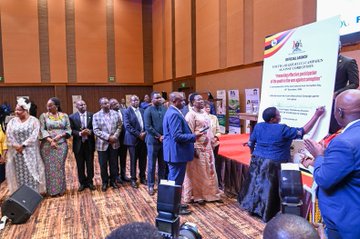
“Technology can help us close loopholes. We also need robust internal and external audits, and close monitoring of critical government programmes like the Parish Development Model (PDM) and road construction projects to ensure proper implementation,” she noted.
The Prime Minister underscored the importance of citizen involvement in anti-corruption efforts, urging people to remain vigilant and report malpractices. “Corruption thrives in silence. Every Ugandan has a role to play in ensuring our public resources are used transparently and fairly,” she said.
In her concluding remarks, Nabbanja called on all stakeholders to unite in creating a corruption-free Uganda.
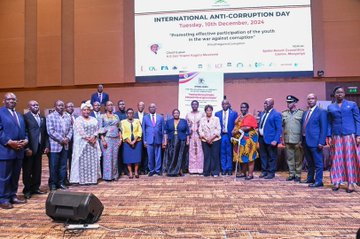
“Let us work together to build a society where transparency, accountability, and fairness are not just ideals but everyday realities. Corruption should have no place in our country, and every citizen must have equal access to opportunities and public resources,” she declared.
Her speech reaffirmed the government’s determination to uphold integrity and accountability as pillars of national development, signalling a collective call to action against corruption at all levels of society.
